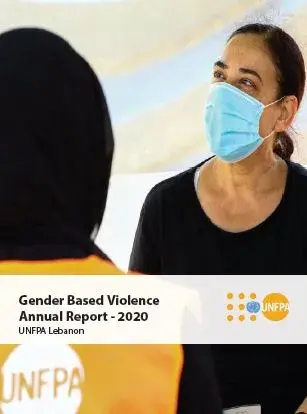Economic contraction, skyrocketing poverty rates, and civil unrest have compounded needs among Lebanese and non-Lebanese communities in 2020. Lebanon hosts 1.5 million refugees, the largest number of displaced people per capita in the world, and most of them (80%) live below the poverty line. Growing COVID-19 transmission is straining the country’s health systems and increased the challenges to access affordable health and social services including protection. The Beirut port explosions have introduced new vulnerabilities and exposed women and girls to heightened risk of violence and exploitation, already significant before the explosion resulting from the lockdown and dire economic crises. These compounded crises affecting Lebanon increased the protection risks, especially for women, adolescent girls, and marginalized groups such as persons with disabilities, undocumented women and girls, older women, migrant workers, and members of the LGBTIQ+ community.
GBV 2020 Annual Report

Publisher
Number of pages
15
Author
UNFPA Lebanon
Newsletter
GBV 2020 Annual Report
Publication date
09 April 2021

